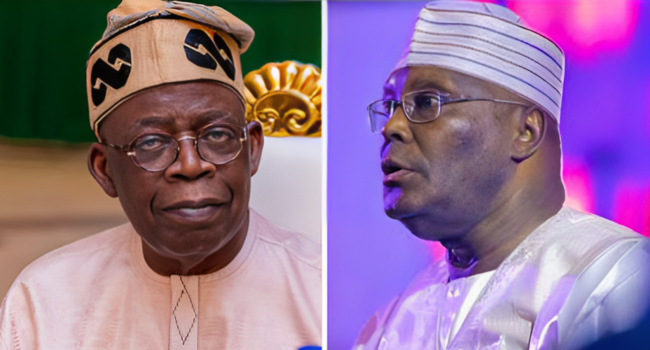Former Vice-President Atiku Abubakar, President Bola Tinubu’s main challenger in the 2023 presidential election, has voiced his concerns over Tinubu’s economic performance as he marks his first year in office.
Abubakar claims that Tinubu’s ill-preparedness for reform fallout has led to a significant decline in the value of the Nigerian currency, bastardizing the naira and making it the worst-performing currency in the world.
Abubakar’s statement comes in response to a report by the UK business newspaper Bloomberg, which labeled the naira as the world’s worst-performing currency, contradicting Central Bank of Nigeria Governor Yemi Cardoso’s previous claims of its steady rise in the global market.
According to Abubakar, Tinubu’s misguided policies have resulted in a sharp drop in the naira’s value against the dollar, causing persistent inflationary pressure and exchange rate volatility.

Despite Tinubu’s deployment of various monetary policy tools, their impact has yet to be felt even after 12 months, as stated by Abubakar.
Abubakar criticizes Tinubu for neglecting to make contingency plans in case his policies fail to achieve the desired outcomes.
He suggests that Tinubu may have deluded himself into thinking his policies would be successful, leading to a lack of preparedness for potential setbacks.
The former vice-president questions the administration’s clarity on key issues such as the reinstatement of fuel subsidy and the status of the naira, whether it is on a free or managed float.
These trial-and-error policies raise doubts about the administration’s readiness and capacity to restore sustainable growth to the economy, according to Abubakar.
Abubakar’s remarks echo the sentiments expressed by former President Olusegun Obasanjo, who criticized Tinubu’s wrongly implemented policies, which have damaged Nigeria’s reputation among global investors and prompted some investors, like Total Energy, to redirect their investments to other African nations with better economic prospects.




